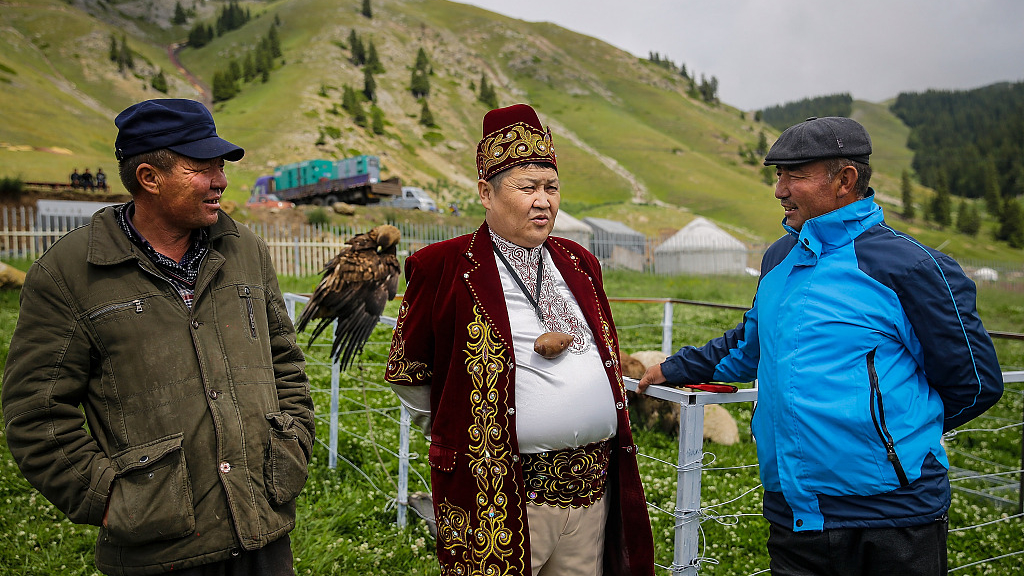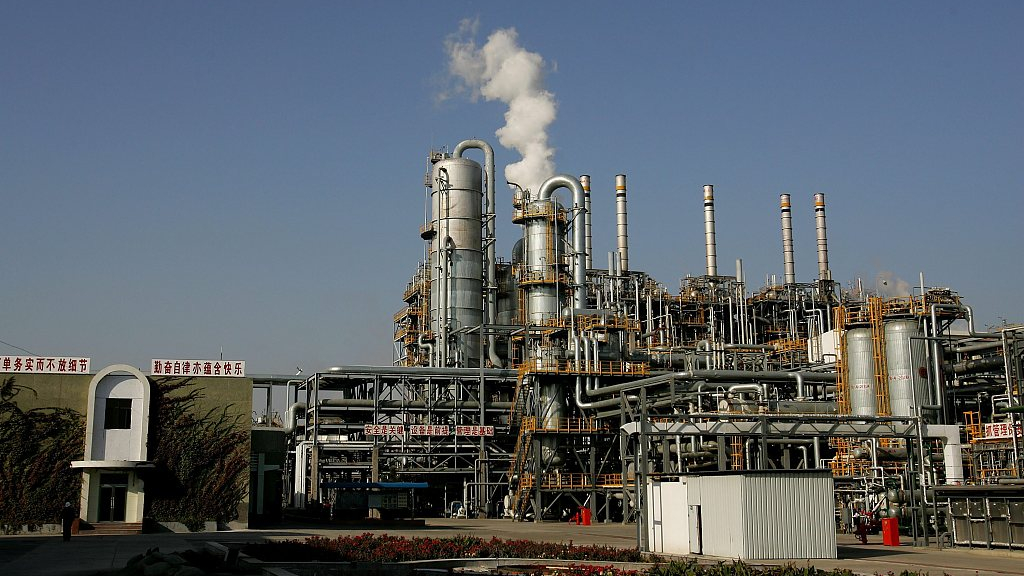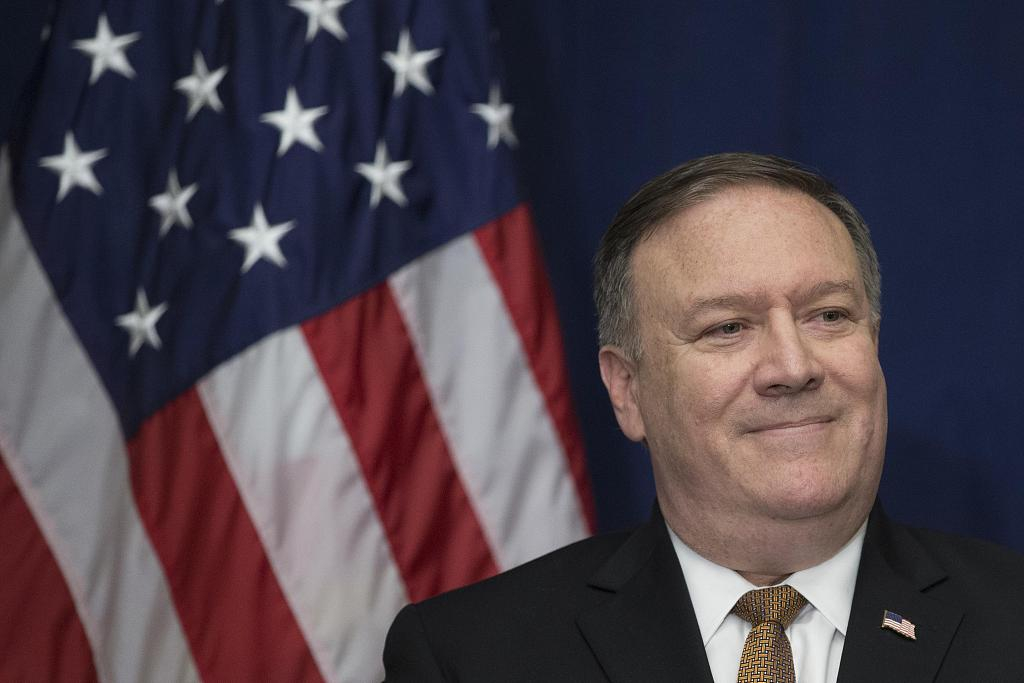
Editor's note: Rabi Sankar Bosu is an Indian freelance contributor to Chinese media outlets. He writes about Chinese politics, social and cultural issues, and China-India relations, with special interest in the Belt and Road Initiative. The article reflects the author's opinions, and not necessarily the views of CGTN.
On October 8, U.S. Secretary of State Mike Pompeo announced visa restrictions against Chinese officials whom he accuses of being responsible for the "detention or abuse of Uygurs, Kazakhs, or other Muslim minority groups in Xinjiang."
It seems now that accusing the Chinese government has become a hallmark of the Trump administration's foreign policy. Under this administration, at every international forum and bilateral meetings with other world leaders and in his election campaign, the U.S. president and his team have made unreasonable accusations against China's domestic matters. However, the bizarre allegations about the human rights crisis in Xinjiang made by the U.S. politicians, including Vice President Mike Pence, Secretary of State Mike Pompeo, and Acting Assistant Secretary for South and Central Asia Alice Wells, are nothing but distorted truth.
The stark reality is that the U.S. politicians and some lawmakers are misreading the transformation that has been happening in Xinjiang. Certainly, the following facts as published by Xinhua on September 25, 2019, are sufficient enough to understand Xinjiang's remarkable social and economic progress.
Xinjiang's GDP reached 1.2 trillion yuan (174.7 billion U.S. dollars) in 2018. It started from 791 million yuan (111 million U.S. dollars) in 1952 and has enjoyed an average annual growth of 8.3 percent. The Chinese government has invested more than 2 trillion yuan in the infrastructure projects in this remote region.
What's more gratifying is that Xinjiang has made remarkable achievements in eradicating poverty, thanks to the support from China's central government as well as the regional government. More than 2.3 million people were lifted out of poverty in the region from 2014 to 2018.
According to a report entitled "Build a beautiful Xinjiang, realize the Chinese Dream" released by China's State Council Information Office (SCIO) on July 30 this year, 1.4 million new jobs were created in urban areas in the last two years. All this indicates that Xinjiang is moving forward to build a well-off society by 2020 as envisioned by President Xi Jinping.

There are vital national infrastructures like oil refineries in Xinjiang. The picture shows China National Petroleum Corp (CNPC)-owned Dushanzi Petrol Chemical Factory is in operation October 16, 2005, in Xinjiang, China. /VCG Photo
There are vital national infrastructures like oil refineries in Xinjiang. The picture shows China National Petroleum Corp (CNPC)-owned Dushanzi Petrol Chemical Factory is in operation October 16, 2005, in Xinjiang, China. /VCG Photo
But unfortunately, Xinjiang, which shares borders with several countries, has long been victims of terrorism and extremism. From 1990 to the end of 2016, separatist, terrorist and extremist forces launched thousands of attacks in Xinjiang, killed large numbers of innocent people and police officers, and caused immeasurable damage to properties.
The Xinjiang regional government, with the support of China's central government, has been engaging in intensive counter-terrorism and de-radicalization efforts, including expanding education opportunities and aid for all ethnic people, including Uygurs, through vocational education and training centers in accordance with the law.
It's really a matter of pride that no terrorist incidents have occurred for nearly three years, thanks to the measures taken in Xinjiang.
The truth is that by raising Xinjiang's human rights issues under the banner of religious freedom at the UN, the U.S. side wants to tarnish China's rising stature in global politics.

U.S. Secretary of State Mike Pompeo has been particularly aggressive in criticizing China's policy in Xinjiang.
U.S. Secretary of State Mike Pompeo has been particularly aggressive in criticizing China's policy in Xinjiang.
They claimed that ethnic Uygurs have been sent to the vocational training centers for being Muslims. Western media outlets even reported that over one million Uygurs "are believed to be held" in training centers and are badly treated.
But the opposite, in fact, is true. Many foreign diplomats and foreign media visited the region's vocational education and training centers in late December last year and early January this year. And they said that no one has been mistreated.
After visiting a few training centers in Kashi and Hotan in southern Xinjiang in February this year, Rahimy Bin A Rahim, a reporter from Malaysia told the Global Times that he found the trainees in these two centers are in good health and enjoy the freedom to do what they want.
It is worth noting that in July this year, ambassadors from 50 countries praised China's position on issues related to Xinjiang in a joint letter addressed to the President of the United Nations Human Rights Council and the High Commissioner for Human Rights.
According to China's Constitution, people of all ethnic groups in China are equal and they enjoy full religious freedom. While U.S. Secretary of State Mike Pompeo in his annual report on international religious freedom released on June 21 criticized China's religious policies in Xinjiang, he and his boss must remember that Xinjiang now has 24,400 mosques while the number of mosques in the U.S. is less than one-tenth of those in Xinjiang.
Undoubtedly, Xinjiang's practice of educating and rehabilitating the victims of terrorist and religious extremist teachings through vocational education and training centers deserves praise and respect of the international community. The U.S. government must understand that there is no country in the world that would allow illegal and criminal activities in the name of religion.
The U.S. or any foreign entity has no rights to criticize China's policy in Xinjiang. In today's world, there is no sovereign nation that allows others to intervene in its internal affairs.
(If you want to contribute and have specific expertise, please contact us at opinions@cgtn.com.)